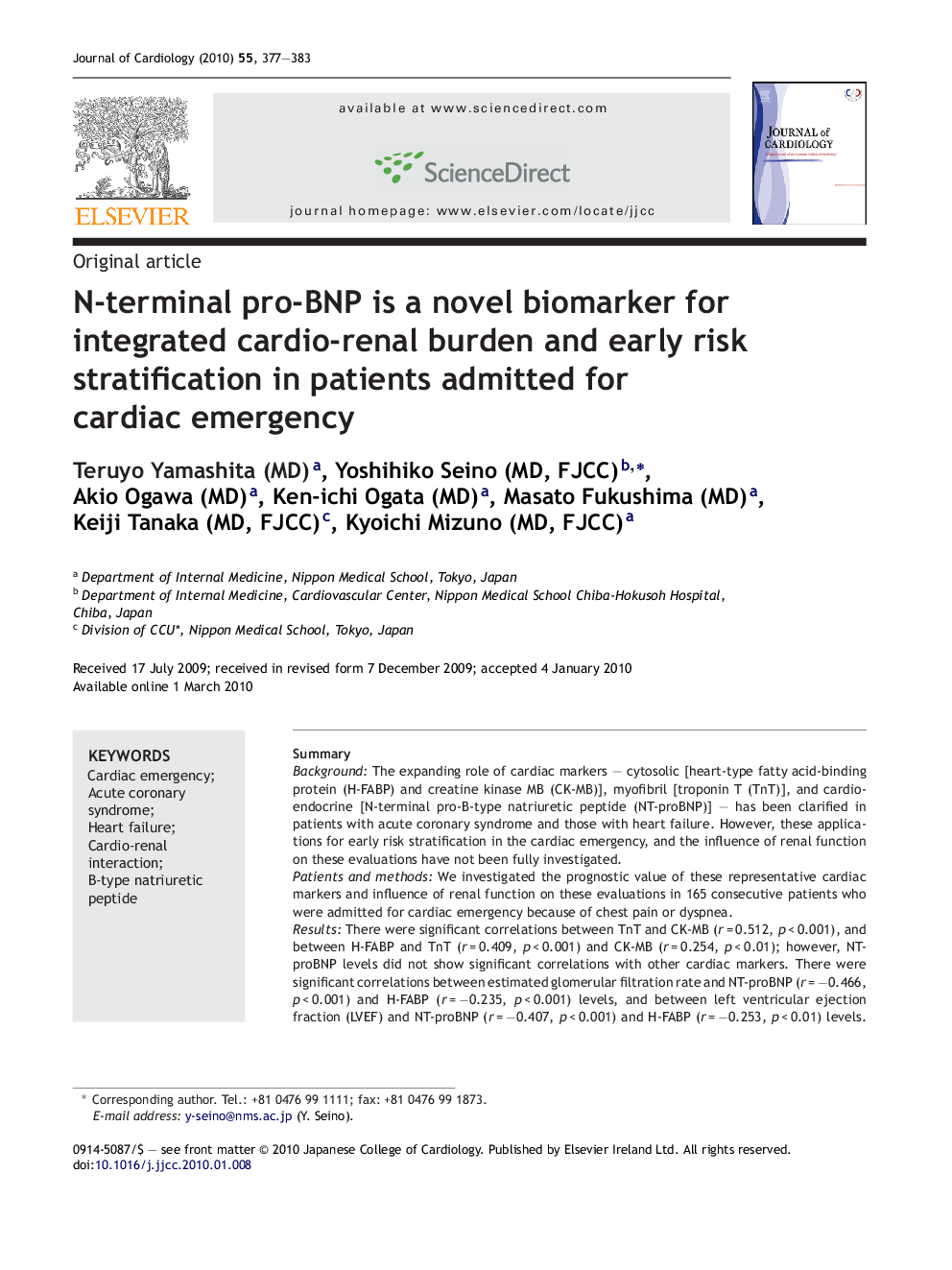| Article ID | Journal | Published Year | Pages | File Type |
|---|---|---|---|---|
| 2963577 | Journal of Cardiology | 2010 | 7 Pages |
SummaryBackgroundThe expanding role of cardiac markers – cytosolic [heart-type fatty acid-binding protein (H-FABP) and creatine kinase MB (CK-MB)], myofibril [troponin T (TnT)], and cardio-endocrine [N-terminal pro-B-type natriuretic peptide (NT-proBNP)] – has been clarified in patients with acute coronary syndrome and those with heart failure. However, these applications for early risk stratification in the cardiac emergency, and the influence of renal function on these evaluations have not been fully investigated.Patients and methodsWe investigated the prognostic value of these representative cardiac markers and influence of renal function on these evaluations in 165 consecutive patients who were admitted for cardiac emergency because of chest pain or dyspnea.ResultsThere were significant correlations between TnT and CK-MB (r = 0.512, p < 0.001), and between H-FABP and TnT (r = 0.409, p < 0.001) and CK-MB (r = 0.254, p < 0.01); however, NT-proBNP levels did not show significant correlations with other cardiac markers. There were significant correlations between estimated glomerular filtration rate and NT-proBNP (r = −0.466, p < 0.001) and H-FABP (r = −0.235, p < 0.001) levels, and between left ventricular ejection fraction (LVEF) and NT-proBNP (r = −0.407, p < 0.001) and H-FABP (r = −0.253, p < 0.01) levels. Kaplan–Meier analysis showed that median of NT-proBNP, H-FABP, and CK-MB significantly discriminated in-hospital cardiovascular death, and multivariate analysis revealed NT-proBNP and LVEF as independent prognostic predictors.ConclusionNT-proBNP is a novel biomarker for integrated cardio-renal burden, and extremely useful for early risk stratification in the situation of cardiac emergency.
